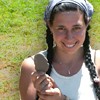(August 4, 2008)
Stellar Faculty: Faculty Profile: UAlbany Professor John Delano's Cosmic Journey
.jpg) |
|
Professor John Delano, Department of Earth and Atmospheric Sciences, is among the leading scientists in the country, researching the origins of life and the composition of planets at the University at Albany-SUNY. (Photo Pat Rotondo) |
Delano's fascination with the universe was triggered in 1957, when he caught a glimpse of Sputnik, the first artificial satellite launched into outer space. It was one in a series of epiphanies that secured his early interest in space exploration.
But there was another moment that reverberated with Delano, which led him to studying moon rocks and other celestial phenomena.
"It all goes back to President Kennedy's decision to send Americans to the moon," Delano said of his decision to study geochemistry. "I thought, 'Holy mackerel, we're going to bring samples back from the moon?'"
After receiving his Ph.D. in geochemistry from SUNY Stony Brook in 1977, Delano began research in astrobiology with NASA, which he continues today with colleagues from Rensselaer Polytechnic Institute.
Part of Delano's early research involved studying samples brought back from the 1971 Apollo 15 mission, a poignant moment in his career. And, although studying the origins of life and the basic questions of the universe continues to fascinate him, his passion lies in teaching -- particularly trying to inspire the next generation.
"When I go into class I�m enthusiastic; I�m jumping around like a lunatic," Delano said. "I try to make it fun as well as informative. Those are the ingredients for inspiration."
That may be why, after 25 years teaching at UAlbany, Delano admits that he still gets nervous before every class.
"I have to get nervous. If I'm not nervous, I'm not on my game," said Delano.
Nerves aside, Delano always introduces each topic to his students by explaining how it fits into the big picture, addressing the basic human question, Why are we learning this?
Over the years, Delano has been recognized for his passion by the State University of New York Chancellor's Award for Excellence in Teaching and the University at Albany President's Award for Excellence in Teaching, although he measures his success in a somewhat different way.
"I keep a folder of what I call 'unsolicited compliments' from students," Delano said. "I�ve been gratified by how thick that folder has become."
Related Links:
Department of Earth and Atmospheric Sciences
NASA
John Delano Faculty Experts Page



